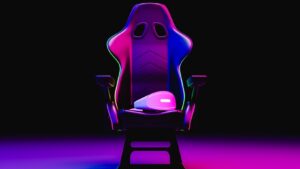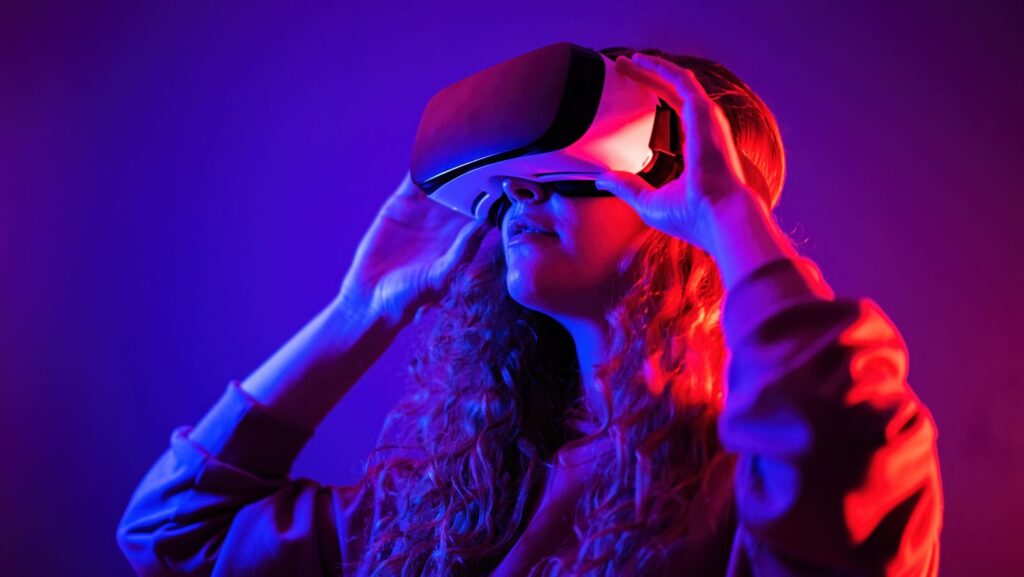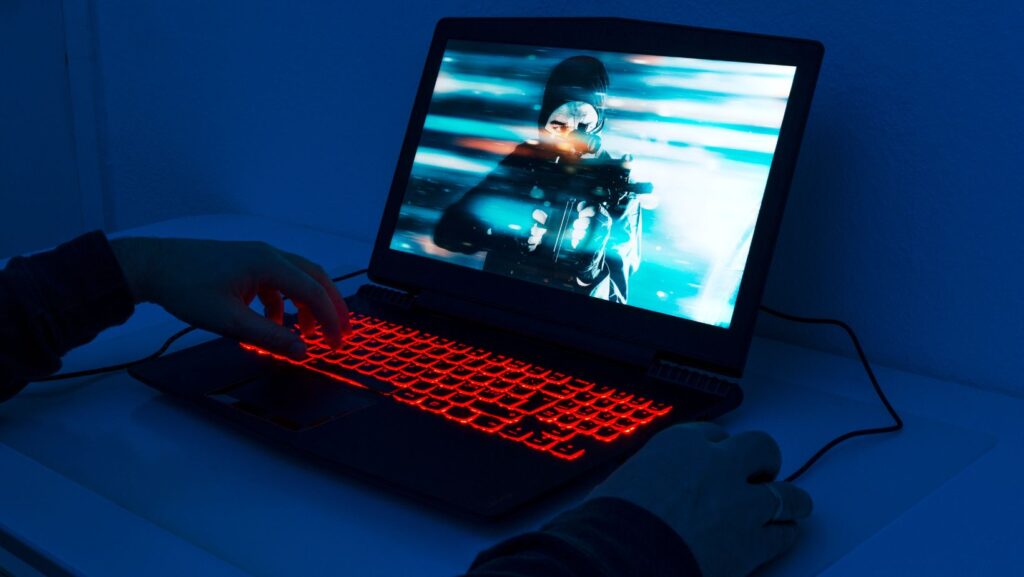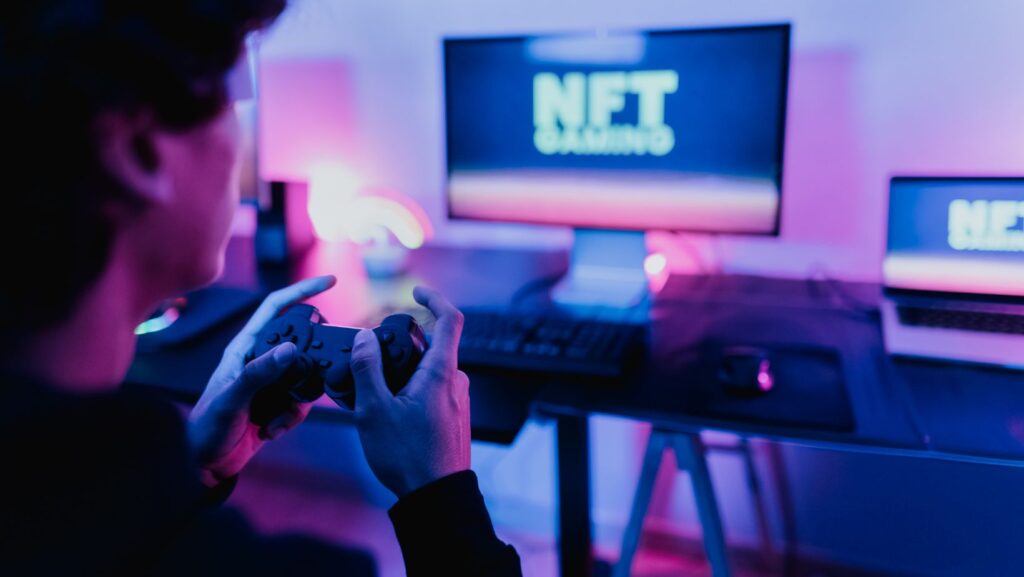 Virtual reality (VR) has revolutionized the gaming world, offering immersive experiences that transport players into fantastical realms. However, to truly enjoy the wonders of VR, a powerful gaming PC is essential. A VR-ready gaming PC ensures smooth gameplay, stunning graphics, and a seamless connection with VR headsets. Choosing the right VR-ready gaming PC can be daunting with so many options available. This guide will break down the key components and features to look for, helping you make an informed decision. Whether you’re a seasoned gamer or new to the VR scene, understanding what makes a PC VR-ready is crucial for an unparalleled gaming experience.
Virtual reality (VR) has revolutionized the gaming world, offering immersive experiences that transport players into fantastical realms. However, to truly enjoy the wonders of VR, a powerful gaming PC is essential. A VR-ready gaming PC ensures smooth gameplay, stunning graphics, and a seamless connection with VR headsets. Choosing the right VR-ready gaming PC can be daunting with so many options available. This guide will break down the key components and features to look for, helping you make an informed decision. Whether you’re a seasoned gamer or new to the VR scene, understanding what makes a PC VR-ready is crucial for an unparalleled gaming experience.
VR Ready Gaming PC
What Makes a PC VR Ready?
A VR ready gaming needs to meet specific hardware criteria. It must handle high frame rates and low latency to ensure smooth performance. Compatibility with VR headsets like the Oculus Rift and HTC Vive is essential. According to NVIDIA, a VR ready PC should have at least a GTX 1060 or equivalent graphics card. High-speed USB ports, usually USB 3.0, are also required for connecting VR equipment. Reliable and fast internet speed enhances online multiplayer experiences. DirectX 12 compatible components improve overall system efficiency.
- Graphics Card: The core of any VR gaming PC. A GTX 1060 (or AMD equivalent) is the minimum requirement, but higher models like RTX 2080 or 3080 offer better performance.
- Processor (CPU): Handles the logic of the game. An Intel i5-4590 or AMD Ryzen 5 1500X is the baseline, but newer processors provide smoother experiences.
- Memory (RAM): Ensures quick access to game data. 8GB is the bare minimum, but 16GB-32GB improves performance in more demanding titles.
- Storage: SSDs provide faster load times compared to HDDs. A combination of SSD (for the OS and frequently played games) and HDD (for storage) is ideal.
- Ports: USB 3.0 ports are crucial for VR peripherals. Ensure there’re enough ports to connect all devices without requiring adapters.
- Power Supply (PSU): Supplies the necessary power to the components. A reliable 500W-700W PSU ensures stable performance.
- Cooling Solutions: Keeps the system at optimal temperatures. Efficient air or liquid cooling solutions prevent overheating during long gaming sessions.
These components work together to provide an immersive and seamless VR gaming experience.
Top VR Ready PCs of the Year
Budget-Friendly Options
 For those looking to experience VR gaming without a hefty price tag, several budget-friendly PCs offer great value. The HP Pavilion Gaming Desktop provides solid performance with its AMD Ryzen 5 processor, NVIDIA GTX 1660 graphics card, 8GB RAM, and 256GB SSD. Another excellent choice is the Dell G5 Gaming Desktop, featuring an Intel i5 processor, NVIDIA GTX 1650 Super, 8GB RAM, and 1TB HDD. These models are ideal for gamers seeking an affordable entry into VR gaming.
For those looking to experience VR gaming without a hefty price tag, several budget-friendly PCs offer great value. The HP Pavilion Gaming Desktop provides solid performance with its AMD Ryzen 5 processor, NVIDIA GTX 1660 graphics card, 8GB RAM, and 256GB SSD. Another excellent choice is the Dell G5 Gaming Desktop, featuring an Intel i5 processor, NVIDIA GTX 1650 Super, 8GB RAM, and 1TB HDD. These models are ideal for gamers seeking an affordable entry into VR gaming.
High-End Models
For the ultimate VR experience, high-end gaming PCs deliver unmatched performance. The Alienware Aurora R11 stands out with its Intel i9 processor, NVIDIA RTX 3080 graphics card, 32GB RAM, and 1TB SSD. Similarly, the ASUS ROG Strix GA35 offers top-tier specs, including an AMD Ryzen 9 processor, NVIDIA RTX 3090, 64GB RAM, and 2TB SSD. These powerhouse systems manage the most demanding VR titles, ensuring immersive and seamless gaming sessions.
How to Choose the Right VR Gaming PC
Understanding Specs and Compatibility
 A VR-ready gaming PC needs specific hardware to deliver an immersive experience. Central to VR performance are the CPU and GPU. CPUs like Intel i7 or AMD Ryzen 7 provide the processing power necessary for smooth gameplay. GPUs such as NVIDIA GeForce GTX 1660 or AMD Radeon RX 590 meet the minimum requirements for most VR games. Assessing compatibility also means ensuring the system supports VR headsets. VR headsets like Oculus Rift S or HTC Vive Pro have specific requirements. For a seamless connection, confirming the availability of USB (3.0) and HDMI or DisplayPort outputs is essential. Without the required ports, connectivity errors may interrupt the VR experience. Memory and storage heavily impact performance. A minimum of 16GB RAM is recommended for running VR applications without lag. SSDs should be prioritized over HDDs for faster load times. Systems with NVMe SSDs offer the quickest data transfer rates, enhancing VR software performance.
A VR-ready gaming PC needs specific hardware to deliver an immersive experience. Central to VR performance are the CPU and GPU. CPUs like Intel i7 or AMD Ryzen 7 provide the processing power necessary for smooth gameplay. GPUs such as NVIDIA GeForce GTX 1660 or AMD Radeon RX 590 meet the minimum requirements for most VR games. Assessing compatibility also means ensuring the system supports VR headsets. VR headsets like Oculus Rift S or HTC Vive Pro have specific requirements. For a seamless connection, confirming the availability of USB (3.0) and HDMI or DisplayPort outputs is essential. Without the required ports, connectivity errors may interrupt the VR experience. Memory and storage heavily impact performance. A minimum of 16GB RAM is recommended for running VR applications without lag. SSDs should be prioritized over HDDs for faster load times. Systems with NVMe SSDs offer the quickest data transfer rates, enhancing VR software performance.



